This year’s Southeastern Leadership Roundtable (SERT) was the sixth time leaders from across the Southeast meta-region have come together to discuss art, community, events, civics and what it means to be a leader in our Burning Man Global Community.
I had the pleasure of travelling to Atlanta for SERT this year, accompanied by several key members of the Burners Without Borders (BWB) team, including Molly Rose (BWB Coordinator), Jim Taflinger (Georgia Regional Contact and BWB Advisory Board Member), Benjamin Slayter (Burnt Oranges and BWB-Florida) and David Katz (BWB Advisory Board Member).
The purpose of the trip was to give a keynote presentation about the evolution of Burners Without Borders, which included outlining the empowering steps Regional leaders can take to create their own BWB chapters and working groups. A focal point of the presentation was co-facilitating the BWB Civic Ignition Grant process and awarding of grants selected by peers.
A Dynamic Process
Civic Ignition Grants are a democratic granting model based on the Chicago Community Grant Program that BWB-Chicago created in 2012.
This model enables local communities to decide where grant money is most needed, nurtures conversation amongst community leaders on what impact means to our community, and trains Regional leaders in the civic ignition framework.
At the 2019 SERT workshop, we had 67 community members evaluate 10 unique grant applications submitted from across the meta-region, including Atlanta, Florida, Louisiana, and as far away as Puerto Rico. We spent close to two hours reviewing the grants as a group and discussing their merits. We also took notes on feedback for grant projects that were not being chosen, so they could improve for future submissions.
As usual, the discussion was dynamic, with contrasting opinions in the room. However, granting requests from the 10 projects totalled $12,700 and Burning Man Project’s seed fund was $1,500, which meant we could only grant about 11% of the initial requested funding.
The difference between requested and available grant monies always makes for difficult decisions, especially when the community shows up with some amazing ideas of how to use creativity and cooperation to make real-world social impact.
Stepping Up
Then something amazing happened, something that I had secretly been hoping would happen since we started this program. Love Burn (Miami) stepped up and offered to match the grant amount of $1,500 and then Burnt Oranges 501c3 (central florida) offered to match an additional $400, bringing the total to $3,400.
With these additional grant dollars, the available amount more than doubled and allowed the group to more adequately match funds with the projects that were inspiring them. Not only did that benefit the workshop, but it was also a testament to the Regional group’s belief in Burners creating social impact.
Love Burn and Burnt Oranges get huge props from Burners Without Borders for stepping up unsolicited and truly putting some money where their mouths are.
At the end of the workshop, the community leaders decided to fund five different projects, which covered permaculture, access to maker culture for both young girls and youth with disabilities, education and literacy, and using art as an empowerment tool for women and children that have experienced violence.
The Beginning
In 2018, BWB partnered with the Regional Network to provide Civic Ignition Grants as part of the locally organized Regional leadership gatherings that have been popping up across the globe.
SERT was one of the first groups to use this community-facilitated granting process. In March of that year, the gathering awarded three grants, including one to the Knoxville Burner community, led by Tennessee Regional Contacts Andrea Kearn and Gabi Stewart.
The initial proposal aimed to plant two native “Moonglow” Pear trees in a Knoxville area being revitalized through art. However, the project team then decided to plant the trees in Sneedville, TN, the home of To The Moon, East Tennessee’s Regional Burn.
The result? The Sneedville Community Center has a beautiful new outside sitting area where locals will be able to taste homegrown pears while they sit on a restored lunar-inspired bench that will be created during To The Moon’s build week later in May.
Called “Grow with the Flow”, the project aims to give back to the land and people that host the local Burn every year, stimulate learning about food security and sources, and recreate a sense of belonging.
It has also stimulated collaboration between the Tennessee Burner community and the Sneedville local community — a prime example of how the BWB Civic Ignition Grants can spark community engagement.
One of the other things I love about the Civic Ignition process is that by letting the local community decide what’s most important to them, BWB learns what’s most important to our community at large, serving as a prompt in how we think about granting through our larger BWB Community Micro-Grant program.
You can read more about the projects that won here.
BWB is a community leadership program. We’re here to help you create the change you want to see happen in your own community. Want to learn how to host your own Civic ignition Grant Workshop? Check out our online tool-kit here.
Feature photo: Southeastern Leadership Roundtable 2019. (Photo by Shawn Ferry)

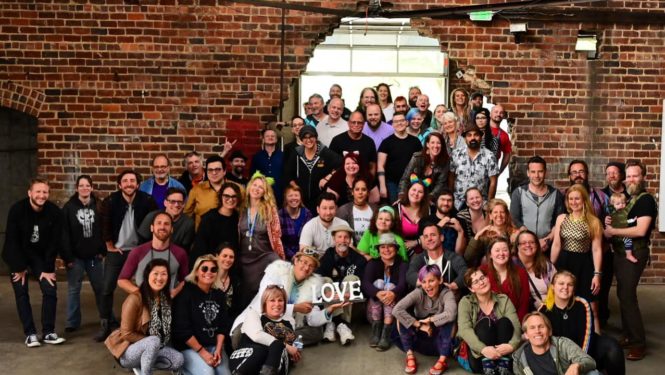
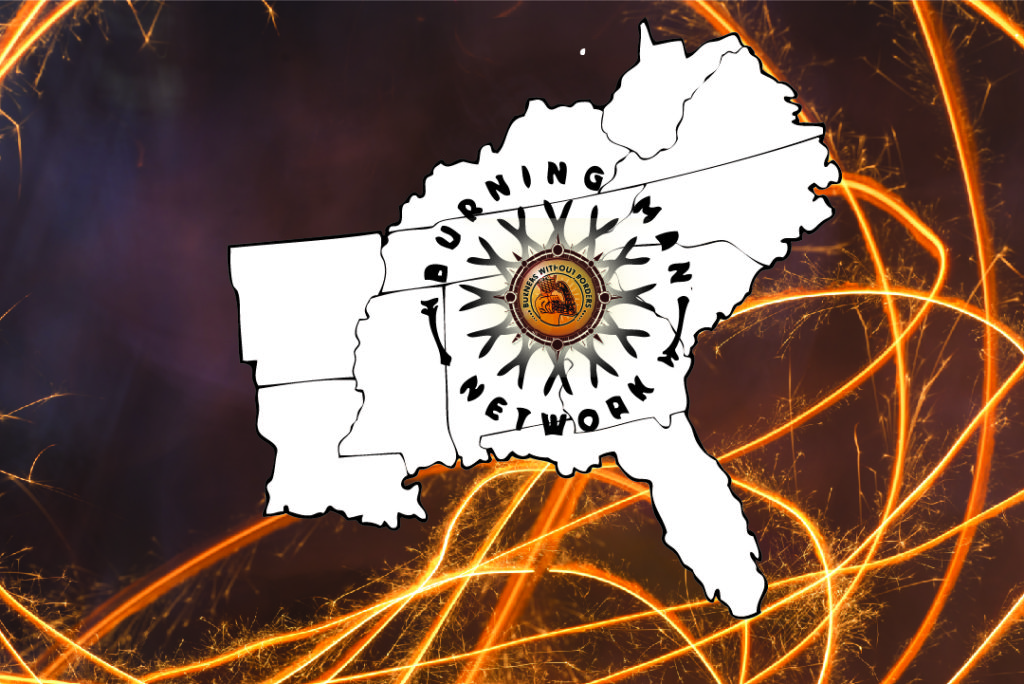
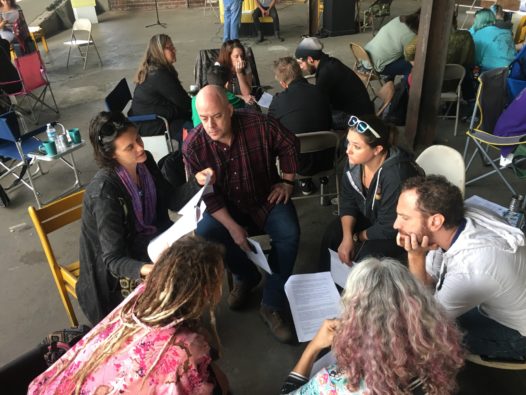
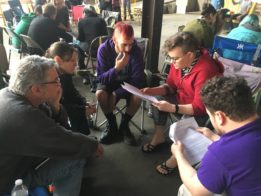
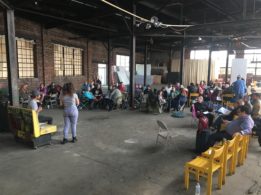
Can you spot the one minority?
Report comment
I have African American friends. One of them I worked with and last year I had one who was a housemate. I take offense at the insinuation that Burners are too white. I have two of the African Americans. I can send you pictures. I’M NOT RACIST. I like Mexican food, too.
Report comment
>…access to maker culture for both young girls and youth with disabilities.
To include only disabled boys. If you meant boys in general, you would have written, ‘both young girls and boys’. This implies that girls are disabled relative to boys in general. Not exactly an empowering implication for girls – implying that girls are only equal to disabled boys.
>and using art as an empowerment tool for women and children that have experienced violence.
Only female children. Also, implying that men don’t experience violence.
Report comment
>…access to maker culture for both young girls and youth with disabilities.
I read this sentence as implying they indented to fund a project that gave young girls and youth with disability better access to maker culture.
> and using art as an empowerment tool for women and children that have experienced violence.
I read this sentence as implying they intended to fund a project that uses art as an empowerment tool for women and children that have experienced violence.
It’s interesting how each of our personal experience, biases, history and internal narrative effects how we interpret communication. Especially communication that is unstated (ie. assumed). Peopling is hard! :)
Report comment
>I read this sentence as implying they indented to fund a project that gave young girls and youth with disability better access to maker culture.
Who are the youth with disabilities, if not boys? Girls with disabilities are included under the term, ‘girls’. Boys without disabilities are purposefully excluded from the project.
That’s not bias, that is literal interpretation.
Report comment
Its funny how your bias caused you to misread when i read (i think correctly) a) girls (not disabled), and, b) disabled youth (of all genders). Are you a non native English reader? It seems like an odd interpretation of a fairly straightforward sentence, but would explain the mixup.
I dont know if non disabled boys need better access to maker culture. My gut feel is.. naah.. but if you feel they do, perhaps launch a project and ask for funding. Its a do-ocracy!
Report comment
You’re just projecting now. I’m sorry about your SAT score in reading comprehension.
Can you please re-read your post and give me the number of all of your grammatical errors? I mean, this just funny.
Report comment
Are POCs not invited or do they not want to participate?
Report comment
that’s a very good question. i don’t think that burners are offended by minorities, i think they like to keep them as acquaintances so they can invite them to parties. but when it comes down to planning for the event, they figure that those folks aren’t in the inner circle. burners aren’t racist, they just don’t like having many POC friends (it’s a cultural thing), and so those friends do something else that week, like watching reruns of the Cosby Show.
Report comment
Comments are closed.